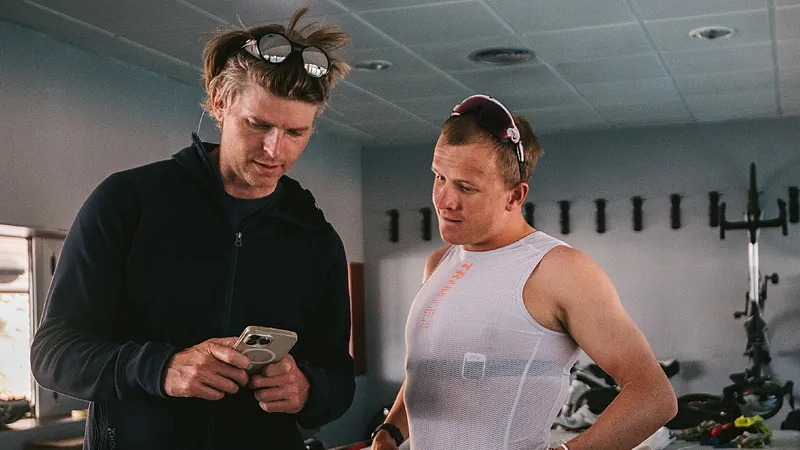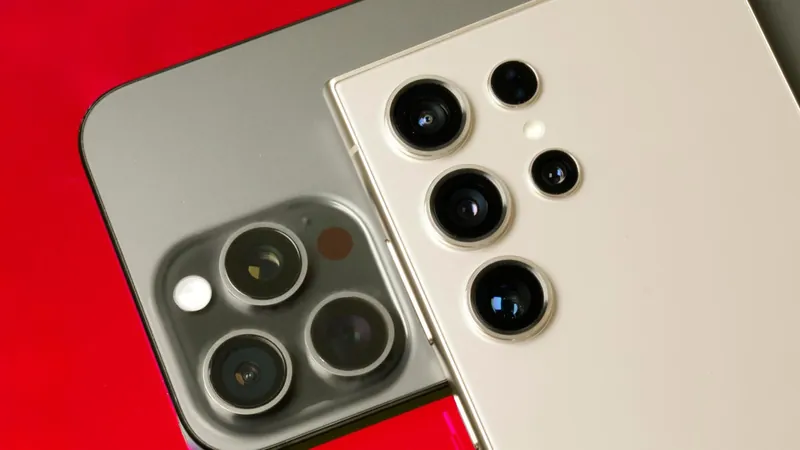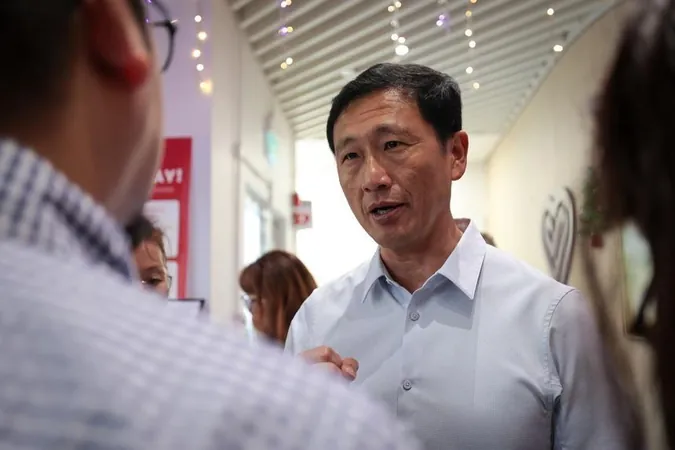
Is AI Ready to Take Over Triathlon Coaching? Insights from the Norwegian Method Pioneer!
2024-12-21
Author: John Tan
In the world of triathlon, the name Olav Aleksander Bu stands out as a leading innovator, particularly known for his groundbreaking strategies under what is popularly referred to as ‘The Norwegian Method.’ As the coach of elite athletes like Kristian Blummenfelt and Gustav Iden, Bu has steered them towards numerous prestigious titles, including Olympic gold and IRONMAN World Champion statuses.
While 2024 has proven less illustrious in this domain, the techniques and tools that Bu has helped develop are gradually being adopted by age-group athletes, paving the way for enhanced performance across the board. Recently, we spoke with Bu to delve into the innovations that he believes will revolutionize training in the coming years.
Adapting to Heat: A Strategy for Success
One major focus of Bu's coaching is heat adaptation. This approach, developed in collaboration with CORE technology, emphasizes the importance of adjusting training to deal with high temperatures. With events like the IRONMAN World Championship in Kona on the horizon for many amateur competitors, effective heat conditioning becomes paramount.
Bu explains the transformative advancements made in this field: “We've made significant progress in understanding how to train in different climates. An especially stark realization emerged during the Tokyo Test Event in 2019, where athletes struggled to cope with heat. It’s vital that triathletes start to think about heat as they do altitude; they must adapt rather than avoid it.”
He draws parallels to extreme athletes like Wim Hof, who have shown that human adaptability can be pushed to astonishing limits. Bu warns, however, that many amateur athletes tend to underestimate the impact of heat, often starting their races too aggressively and suffering as a result.
Nutrition: A Complex Frontier
When it comes to nutrition, Bu believes that both professionals and amateurs can achieve significant improvements, yet he recognizes the complexities involved. “Nutrition is a critical area, and you can often feel the difference on race day based on how well you’ve fueled your body,” he advises.
He points out that the intricacies of nutrition are not as straightforward as one might hope, with ongoing debates surrounding the best practices. Knowledge and technology are advancing, but the field remains challenging to navigate.
Innovations in Testing and Measurement
In contrast to the murky waters of nutritional science, advancements in field testing, such as the use of portable metabolic analyzers, are providing triathletes with valuable insights. Bu highlights tools like VO2Master and Body Rocket, which enhance understanding of performance metrics more effectively than traditional wind tunnel testing.
“There’s a robustness to on-road testing that can’t be replicated in a controlled environment," Bu states. This practicality allows for real-world insights that benefit athletes’ training and performance.
Is AI the Future of Coaching? A Humble Perspective
As we discuss the surge of technology in sports, the conversation shifts to the role of Artificial Intelligence in coaching. While many tout AI as a potential game-changer, Bu maintains a cautious stance.
“AI has a broad definition, and while it does offer tools to help athletes and coaches make informed decisions, we're still far from it replacing the nuanced insights that a human coach brings to the table,” he cautions.
Bu acknowledges the limitations of current sensors and data collection techniques, emphasizing that much of what is necessary for effective training is not quantifiable. “While AI can significantly aid coaches in analyzing data, it cannot replicate the human element that is vital for successful training programs,” he explains.
In conclusion, while AI holds promise for the future of triathlon coaching, Bu believes the synergy between technological tools and human expertise will remain central to the success of athletes. For aspiring triathletes, the path ahead is illuminated by a blend of tradition and innovation, suggesting there’s still a long way to go before AI could ever fully take the reins. Stay tuned—this fusion of technology and coaching could usher in a new era of athletic excellence!


 Brasil (PT)
Brasil (PT)
 Canada (EN)
Canada (EN)
 Chile (ES)
Chile (ES)
 España (ES)
España (ES)
 France (FR)
France (FR)
 Hong Kong (EN)
Hong Kong (EN)
 Italia (IT)
Italia (IT)
 日本 (JA)
日本 (JA)
 Magyarország (HU)
Magyarország (HU)
 Norge (NO)
Norge (NO)
 Polska (PL)
Polska (PL)
 Schweiz (DE)
Schweiz (DE)
 Singapore (EN)
Singapore (EN)
 Sverige (SV)
Sverige (SV)
 Suomi (FI)
Suomi (FI)
 Türkiye (TR)
Türkiye (TR)